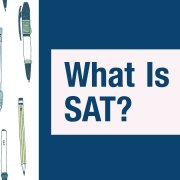We get it: Summer reading assignments aren’t the most enjoyable part of summer break. Even if it’s a book you might otherwise be interested in reading, being told that you have to read it sucks all the fun out of it. We can’t exactly make your summer reading assignment the highlight of your summer. We can help take some of the pain out of your summer reading assignment. Read on for some of our tips.
If you have a choice, give it some real thought.
A lot of teachers give you a list of books to choose from. When that happens, you should make the most of it. Look at summaries for each book and choose one that is at least a little bit interesting to you. Nothing makes a reading assignment more boring than having to read something that you find to be mind-numbingly dull. DON’T just pick the shortest book because you think it’ll be easier and faster to get through. The shortest book may have fewer pages, but that doesn’t mean it’ll hold your attention or that it’s an easy read. After all, Kafka’s Metamorphosis is only about 100 pages long, but it’s a deep (and kind of dark) read.
Make your summer reading social.
Your whole class is in the same boat. It’s probably a safe bet that a lot of them haven’t gotten their summer reading out of the way either. Misery loves company, so why not start an impromptu book club? You can slog through the reading together AND get a deeper understanding of the material through discussion. (Incorporate junk food and commiserating about the looming end of summer break.)
Read directions.
Some teachers just want you to be ready to discuss the book when class starts. Others want daily reading journals. Yours might want a twenty-five-page thesis on how the protagonist symbolizes modern consumerism. (Probably not that last one.)
You don’t want to get halfway through the book only to discover that you should have been writing summaries of each chapter or identifying vocabulary words. Make sure you read the directions before you start so that you only have to read the book once.
Make a plan.
For starters, leave yourself enough time to reasonably read the book without having to stay up all night before the first day of school. If you read 300 pages in one night, you’re not going to remember any of it. You’ll have stayed up all night with nothing to show for it but bags under your eyes. Instead, give yourself at least a week or two to get through the book. Figure out how many pages or chapters you need to read each day, and set aside time every day to nothing but read those pages or chapters. Treat your reading time like an appointment you can’t break. This way, you tackle the book in digestible chunks.
Read the actual book.
Reading SparkNotes is not the same thing as reading the book. Think of it this way: Do you ever read a recap after you finish watching an episode of a particularly complex television show? The recap points out details you might not have caught or offers an analysis you hadn’t thought of. You wouldn’t just read a bunch of episode recaps instead of watching the episodes. You read the recaps to supplement watching the episodes.
SparkNotes is nothing but a recap. If you read SparkNotes instead of the book, you might save yourself some time, but you won’t fully understand the book. You’ll also have sucked out any possible enjoyment you might have gotten from reading.
Give yourself a palate cleanse.
Once you’ve finished slogging through your assigned reading, remind yourself that reading is actually an enjoyable activity by reading something you think is fun. Whether that means rereading Harry Potter or tackling some hefty nonfiction doesn’t matter – what matters is that you read.
And if you’re among those who do not find reading to be enjoyable, then we’re flattered that you’ve read this entire article despite not liking to read. We won’t bore you with a litany of statistics demonstrating the importance of strong literacy skills, both in the classroom and in the workplace. We’ll just say this: Reading is probably the most fundamental skill that you can build to ensure future success, and we’d love to help you build that skill.
Good luck with your summer reading assignments!









